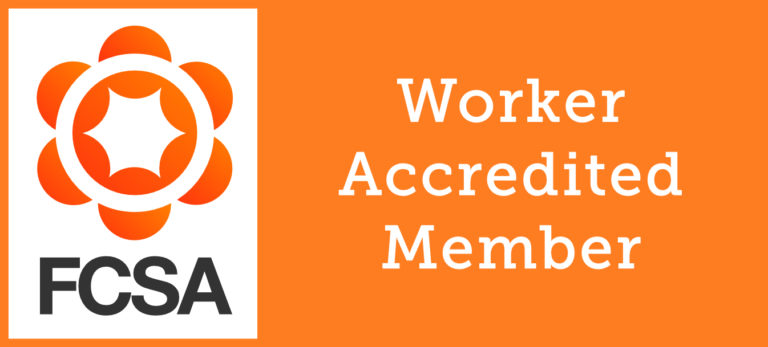The Covid-19 pandemic has caused an unprecedented shift in the way we think about our working lives and careers. Over 40% of people who responded to Microsoft’s Work Trend Index – a global survey of over 30,000 people in 31 countries – said they are considering leaving their employer in 2021. The variety of reasons given for the change include wanting faster career advancement, better benefits, a more positive culture and the ability to enjoy flexible and remote working.
Generate’s contractor payroll and compliance specialists explore everything you need to consider when thinking of a new contractor career in Denmark.
Guide to Contracting in Denmark: 4 Things You Need to Know
1. Visas
Under European Union rules, individuals who are citizens of other EU member states, EEA countries and Switzerland have the automatic right to live and work in Denmark. To stay in the country longer than three months, individuals must apply for and receive an EU residence certificate and have a confirmed job offer. The residence certificate provides the ongoing right to live in Denmark for as long as you remain in this same employment, or apply for another permit with a new job in the country.
Following Brexit, UK citizens are still able to enter the country for employment purposes, but must abide by additional rules. Foreign workers from outside the European Union are eligible for both work and residence permits if they have a confirmed job offer from a Danish employer relating to one of the shortage occupations on the official Positive List.
Experienced professionals without a confirmed job offer can still enter the country to look for work. The Danish Green Card scheme offers a points-based work permit enabling skilled individuals to live and work in the country for up to 18 months (after which time the card can then be extended). Individuals score points based upon criteria including language skills, work experience and education, and the scheme requires a valid health insurance policy alongside proof of your ability to support yourself and your family whilst jobhunting. Those scoring above 100 points can also bring their immediate family to live with them for the time period.
2. Tax
Although taxes are higher in Scandinavia than other neighbouring EU countries, Danes enjoy unparalleled return on investment. Danish income taxes are progressive and reach a marginal rate of 56.5% at the top end of the earning scale, to fund everything from healthcare and education to infrastructure and world-leading social services. An individual who has a home in Denmark or who stays in the country for six consecutive months or more is classed as a resident for tax purposes and must pay tax on income.
Rates of pay are also higher – the average Danish wage is 6% higher than the UK’s, with the higher end of this average significantly higher than the earning potential of most UK workers – affording higher standards of living.
3. Job Opportunities
The Danish per capita gross national product is among the highest in the world. The nation has achieved a strong recovery following the Covid-19 pandemic: the economy expanded in Q2 2021 due to heightened activity in the catering, culture, retail and employment sectors, signalling promising opportunities for workers looking to move abroad.
With 86% of Danes speaking English as a second language, UK jobseekers will find it easy to navigate online job postings, apply for roles and arrange interviews.
Danish organisations are suffering skills shortages in many areas that are well matched to skilled contractors, including:
- Education – Primary and Secondary School Teachers and Nursery Workers
- Engineering – Electrical, Mechanical, Environmental and IT Engineers
- Finance – Financial Controllers, Analysts and Auditors
- Healthcare – General, Anaesthetic and Surgical Nurses
- IT – Consultants, Developers, Programmers and Solution Architects.
The most popular job boards in the country – with the highest number of job adverts posted per day across industries – include:
4. Reasons to Work in Denmark
- Happiness – For several yearsDenmark has consistently topped the UN’s World Happiness Report in all six areas of life satisfaction: income, healthy life expectancy, social support, freedom, trust and generosity. In 2021 the nation ranked second on the list, behind only its neighbour Finland, for the third year in a row.
- Work/Life Balance – Employers recognise their staff as people first and foremost,meaning Danish workers enjoy some of highest amounts of leisure, social and family time, and best work/life balance, across the globe. Whilst the Danes are hard workers – the nation boasts higher productivity levels on average than its Scandinavian and many of its European neighbours – most permanent and temporary employees stick to the official 37-hour work week. Overtime and staying late is strongly discouraged by employers and colleagues, and most leave around 4pm to pick up children from school, prepare evening meals and enjoy time with family and friends.
- Culture – Known as a friendly and collaborative place to live, Denmark’s contractors and international workers are made to feel so welcome that the number of immigrants and their descendants living in Denmark has increased by 44% in the past decade alone. Danes value openness, honesty, politeness and respect, and trust and community are deeply embedded in the nation’s way of life.
- Equality – Scandinavian countries have some of the world’s best rates of equality in the workplace. Danish workplaces have one of the lowest income equalities in the OECD, and the lowest poverty rates, meaning that a majority of staff are paid wages and rates affording a high standard of living. Women are well-represented in parliament, more Danish women receive University degrees than men, and equally distributed parental leave enables mothers and fathers to jointly balance careers with childcare. The country legalised same-sex marriage in 2012 and capital Copenhagen is renowned as one of the most LGBT+ friendly cities in the world.
Build a More Satisfying, Beneficial Contracting Career
Are you struggling in your current contract role? Discover 3 Solutions to the Most Common Contractor Problems.
Our payroll and contractor management specialists have helped thousands of contractors with a wide variety of problems, challenges and career changes. Find out how we could help you.











